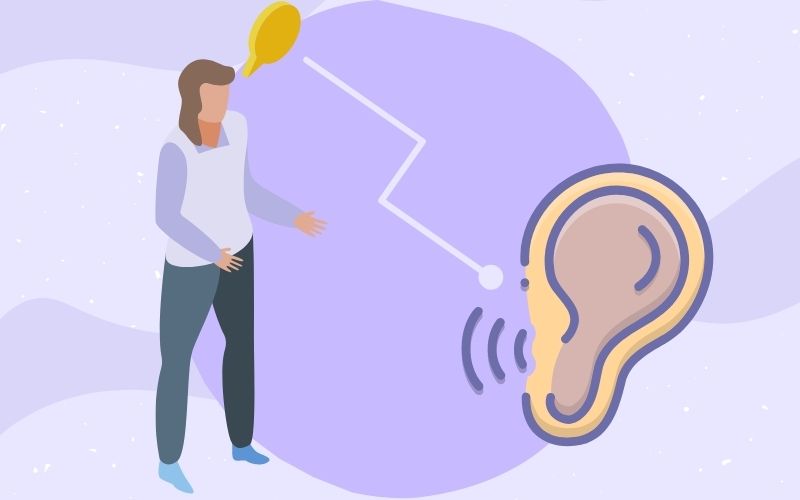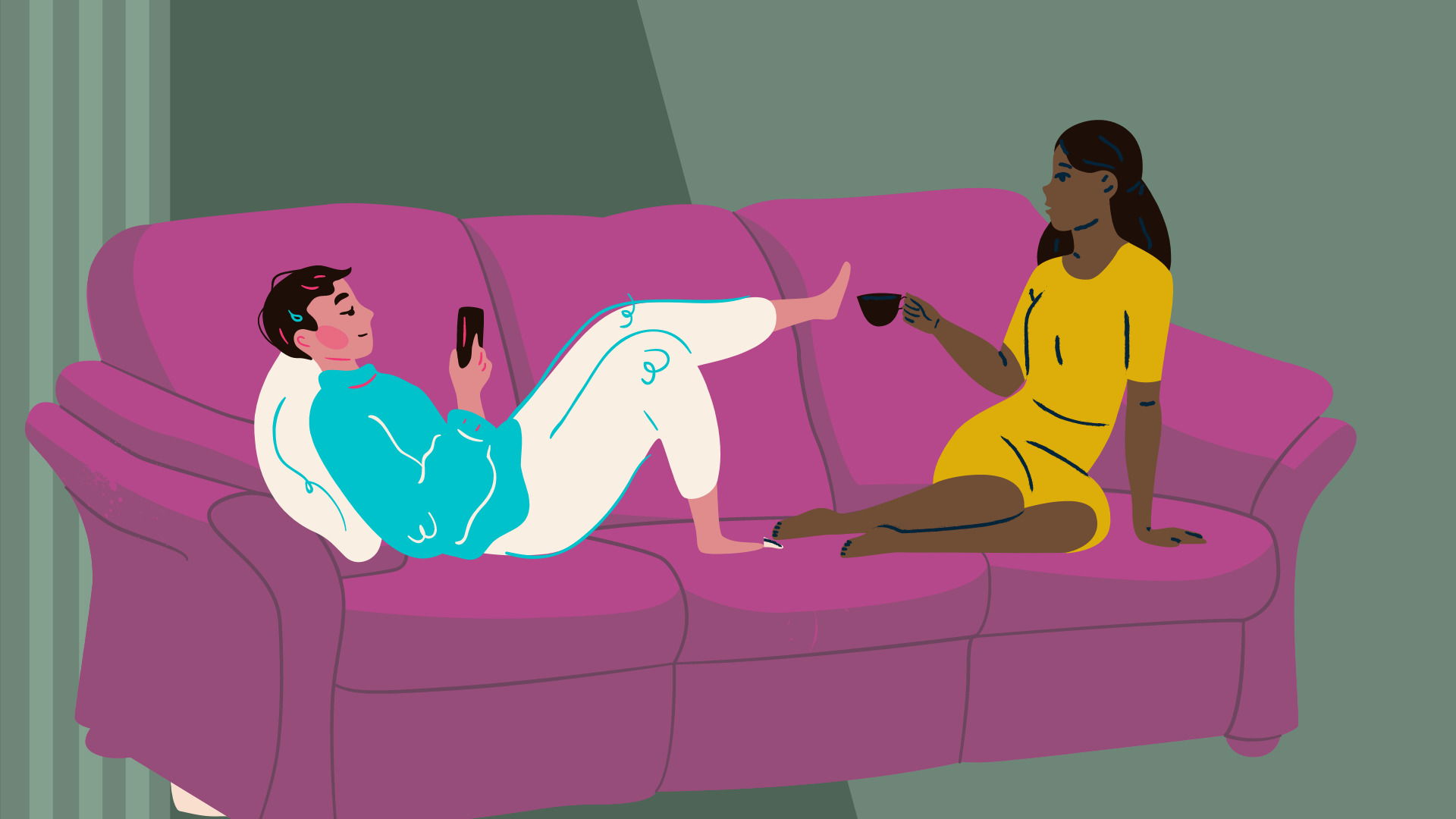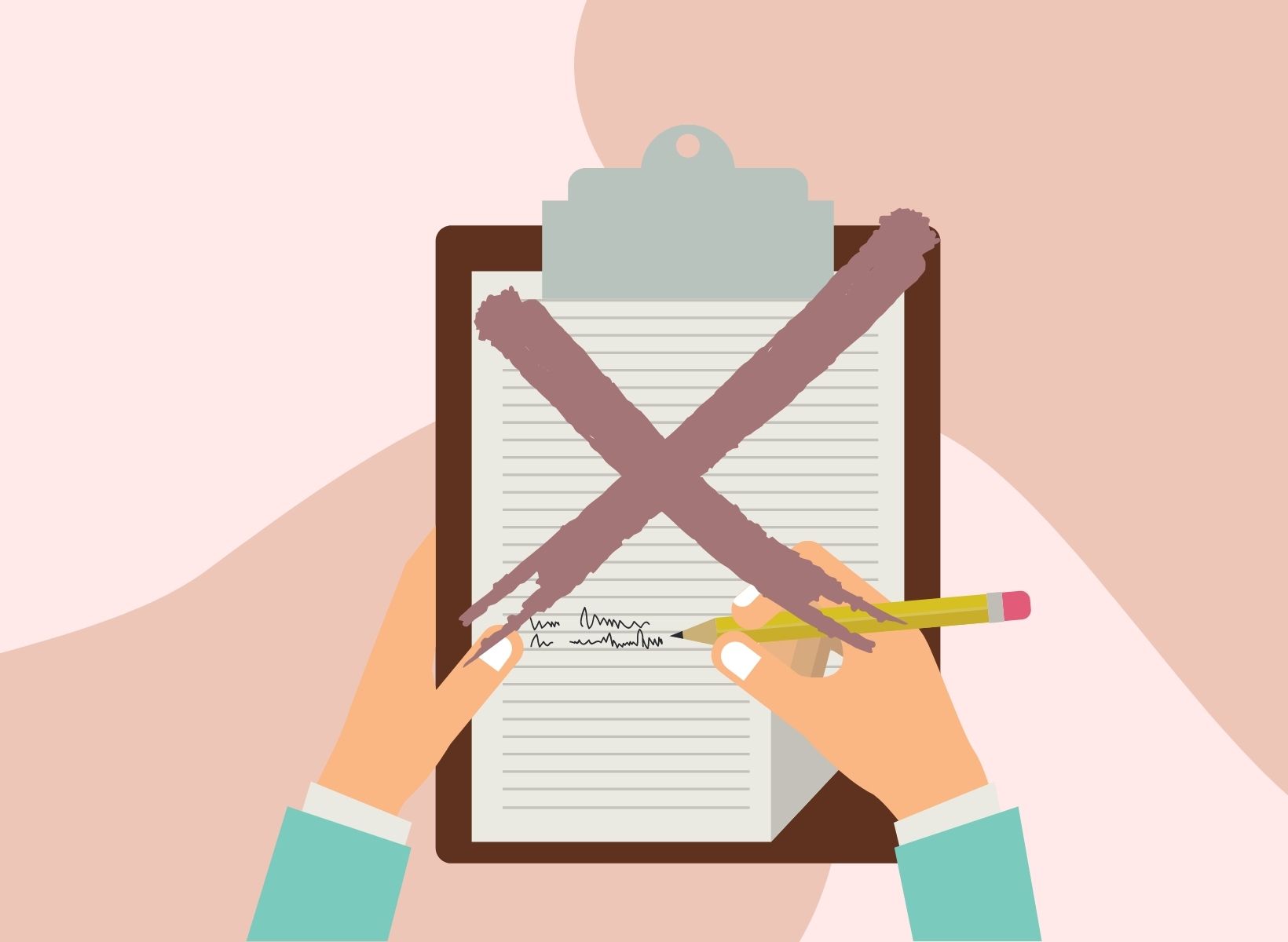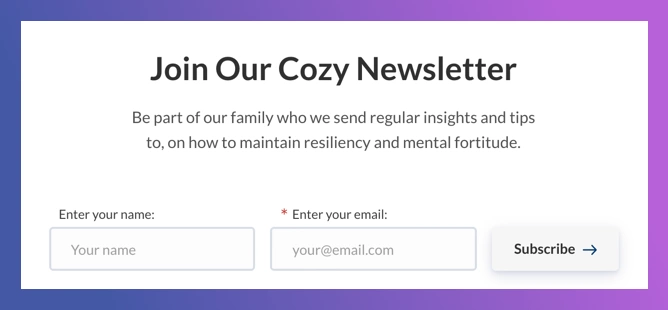Learn how to improve your listening skills and be there for those who need you in everyday life

Summary of contents
- What is the role of a listener?
- So...what exactly is good listening?
- Be present
- Don't jugde
- Show empathy
- No agenda-Let it flow
- Listen to learn
- Use body language
- Give feedback
- Be reflective
- In conclusion
What is the role of a listener?
Most of us are taught the art of conversation from a very early age. While this may help create social relationships, it does not presuppose that we can respond equally well to both roles of a conversation: the speaker and the listener. Τhe role of a listener, in particular, is much more demanding; it often depends on the listener whether a discussion will continue or not.
Good listeners are always there to pay attention to the one who is talking, trying to understand what they want to say, and actively participating in the development of the conversation. Being a good listener is one of the best ways to make people feel important and appreciated, and it can help you establish meaningful relationships.
People with strong listening skills are effective communicators. And if you want to make sure you are getting the best from every conversation, you need to develop those skills.
So... what exactly is good listening?
Good listening is the ability to pay attention to what the other person is saying and be genuinely interested without judging or interrupting. It is more than just saying “yes” to what people are saying. It is about understanding and seeing the world through the other person's eyes. This article will go over the 8 most important things you can do to become a good listener and make others feel comfortable around you.
1. Be present

''Be present''. You have probably heard this phrase from the mindfulness movement. And although we might feel like we know exactly what being present means, it's a much more complicated thing. The idea is to be mindful of the ‘here and now,’ to be in the moment. Stop thinking about the past and future and focus only on what is happening right now. When you’re being present, you can hear what people are saying. You focus on the words the other person is using and their meaning.
It can be hard to stay fully absorbed and attentive when someone tells you a story. It is also challenging if that person is talking about a topic close to your heart because you find yourself lost in your own thoughts. One solution? Take a deep breath and slow down the conversation. You can ask the speaker to take it slow or make some intermediate questions and give extra time to elaborate on each to-be-discussed topic.
It's a fact that it isn't easy to achieve listening when we are constantly bombarded with so many thoughts and information in our lives. Thinking about an upcoming deadline, the news from a TV in the corner of the room, sounds from messages and notifications on your smartphone can all distract you from listening to the person speaking. So make sure you focus on your sense of hearing and avoid distractive thoughts and circumstances. Put your smartphone on silent! Let those who want to reach you know that you will contact them later.

Present means giving attention solely to what is happening right now, and the thing happening right now is that a person is talking to you, so that's the central fact you have to pay attention to.
2. Don't judge
When you are listening to people, remember to avoid judging them. Sometimes you may be biased towards someone and misunderstand what they tell you. It is like you are not allowing yourself to hear what the person is saying. In your head, you might be thinking something like, ''I don’t think this works like this'' or ''They are probably being too dramatic about it.” But you have to remind yourself that the person in front of you is entirely different from you and has their own mindset and point of view. And if they are feeling some way about a specific situation, you have to believe it and not question its authenticity.
The whole non-judging approach of a good listener includes being open-minded and willing to accept opposing views. Open-minded means also avoiding interrupting the talking person with corrections and critical comments. It means you give plenty of time to the other person to expand on their thoughts and finish their sentences. This, in turn, will motivate the speaker to express more and feel important.
Adopting a broader way of thinking doesn't mean that you have to agree with everything they say and change who you are. It means that you should see their point of view and respect that. Remember that you are there to listen and not check the credibility of what is being said.
3. Show empathy
Empathy is the ability to understand the emotions and thoughts of another person. Listeners who experience empathy make the speaker feel like they are being understood and accepted. Listener empathy means showing compassion and ensuring that you are there for support.
Listening, empathy, and compassion go hand in hand with one another. Listening is the primary way we understand what someone is saying or the point they are trying to make. Empathy helps us understand how someone is feeling or thinking, or whether they are being affected by emotions, stress, or other external influences. Compassion allows us to feel and show sympathy and concern for someone’s situation, needs, and challenges.

As listeners, you feel the pain of the other person. It’s the difference between someone who says, ''I am sorry I missed your call'' versus ''What happened? I’m so sorry, but I’m on the phone right now.'' The second person is not doing it to be polite; they do it because they care. Empathy helps people see what others are going through and gives the speaker a feeling of belonging. This feeling is super important for their well-being as it reminds them that they are not alone and that although they are facing difficulties, they will get ahead.
4. No agenda-Let it flow

The next tip is to put your agenda to the side. There is no need to have any plan when listening to people. We often find ourselves trying to control the conversation. We are afraid that we will seem indifferent and inexperienced if we don’t know what to ask. But the thing is... it can work differently!
When we listen with no pre-structured questions and rules, we leave others free to narrate their concerns without losing their coherence. Going according to an agenda can lead to interruptions and push the conversation to specific, pre-planned paths, which would make the speaker feel uncomfortable and forget essential details of their story.
So, all you have to do is sit back and let the conversation flow naturally. Don’t jump in to change the topic or steer the conversation. Let the person in front of you talk freely and be open. If you feel like the speaker is stuck or lost their flow, you can ask some follow-up questions to keep the conversation going. These questions depend on what is being said and can have a more informative character. For example, asking the speaker to give more information about a particular point.

Nevertheless, you can make a few notes after meeting with the other person to write down the significant issues and keep up with their situation for the next time you see them. In these ways, you can slowly free yourself from rules and the stress of ''what am I asking next?'' and try to go with the flow to become good listeners.
5. Listen to Learn
The next step in this process is the ‘listen to learn’. You can keep this in mind as ''the LL strategy'' (Listen-Learn). It is essential to understand the meanings behind every conversation and truly hear what the other person is saying. Remember that every interaction is a two-way conversation. You can ask questions, and people are likely to respond to your question with more information than they initially intended to provide.
In this way, you can learn more about the person in front of you, and learn more about several presented topics and how other people are handling them. Listening to understand can broaden your knowledge and get you in touch with various experiences that can inspire you to manage your issues in the future.
Asking questions about things you don't understand or asking the speaker to expand on a particular thought shows you are paying attention and are genuinely interested in everything you are listening to. It gives the feeling that you are not in a superior position where you know everything, but you let the speaker know they have the power to teach you things.
6. Use Body Language

The next tip to follow is to show that you are listening with body language. It is no secret that good communication involves more than just listening and talking. How you physically position yourself in front of your speaker can be just as important as how you speak to them. This can be a powerful tool in helping to make people feel confident and continue talking.
To demonstrate that you are actively paying attention to what is being said, be sure to listen intently and use eye contact. When you look directly at someone, they know that you are interested in their feelings and ideas. Of course, you can let your gaze turn elsewhere from time to time, thus offering some breaks in the intensity of the moment of speaking and sharing.
Your body placement and posture also play an essential role in communication with others. Try to keep a solid stance and a balanced distance from the person who is talking, not too close to make them feel uncomfortable but also not too far to make them think that you are indifferent. Keep in mind that it is better to have your body turned towards your speaker and not to sit in such a way that you look at them sideways.
Don't forget to control your facial expressions. For example, avoid yawning or using intense grimaces that make the person in front of you feel uncomfortable. Relax your face and let the words guide your expressions.
You can also try nodding your head or using your voice by saying ''uh-uhm'' to show the talking person that you are 100% listening to them.
In either case, speakers' reactions can indicate a lot, which we need to consider. So, even our body and facial expressions can differentiate from person to person, based on how they react to our manners. Still, these points above find a comprehensive response, and their application has the desired effect for the most part.
7. Give feedback

This tip is crucial and has to be carefully applied. Giving feedback does not mean that you will be someone whose advice sounds like a popular internet quote. When giving feedback, you adapt your answers to the individual you have in front of you since it is unique.
Your attention to the speaker will help you choose the right words to form your feedback. As a general rule, try to keep your feedback as close to the original words as possible. You can control it and make it short and brief without letting your tone change.
It is vital to not let yourself get too involved or distracted. Try to control your emotions and try not to sound angry, upset, or frustrated; if needed, take a step back and make sure you can say it calmly and positively, or take your time to think about what you want to say and how you want to say it. Just pay attention to make your feedback contain the necessary information to help the other person go one step further.

Feedback can sound like ''And why do you think he did that?'', allowing people to answer in a way that feels easier for them. Another example of feedback could be structured like: ''I believe this was the right decision for you but recklessly implemented''. Not having such a strong position and trying to be mild will help. You have to be sincere and give your honest opinion, but be careful; your goal is to encourage and not hurt others.
8. Be reflective
Reflection is a widely used technique in therapy sessions and is extremely important for talking-listening between two people. It is a form of internal processing expressed as the words hit a mirror. When you reflect on a topic, you paraphrase what has been said and summarize the essential points. By doing so, listeners have the opportunity to expand on a topic and reveal the real emotion behind things or the real motive behind moves to the speaker.
For example, a reflective phrase could be: ''What you are telling me is that because of this, you found yourself in this situation, and I believe that this is what made you feel disappointment.'' This phrase includes both summarization and an emotional reflection which makes the speaker realize things that probably haven't been in their mind before. With this phrase, you confirm what the speaker says and make them feel valid. In the next stage, you reveal how they think; something they may not have recognized until the moment.
Even questions can be reflective when you want to be sure about what others are trying to say. They give the speakers the option to go deeper on a subject or clarify their position, even in their minds.

Reflection helps people better understand their actions and behaviors. We all need to be reflective when we listen to other people talk. This will help us be more open to learning and understanding others. We will communicate better if we know how to be reflective when listening to others.
In conclusion
Being a good listener is undoubtedly demanding but not as difficult as one might think. Listening requires time and attention, and it is not about the number of words you use but rather the quality of your listening. You must understand what the other person is trying to communicate and how it is displayed.
Even for a stranger or a person we know, our society needs to make others feel heard. However, it's not always easy to be the perfect listener when you have so many issues to stress over and things running in your mind. But if we all practice these tips, there will always be someone in your way to make YOU feel heard! For additional advice, you can check out medically reviewed counseling articles online.
Get to know us more!
If you would like to get involved in this initiative and be a part of history in the making, feel free to shoot us an email at contact@buddyhelp.org, or browse our website to discover all of the many ways you can join our BuddyHelp family and make a difference in the world.
